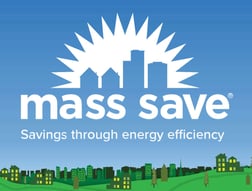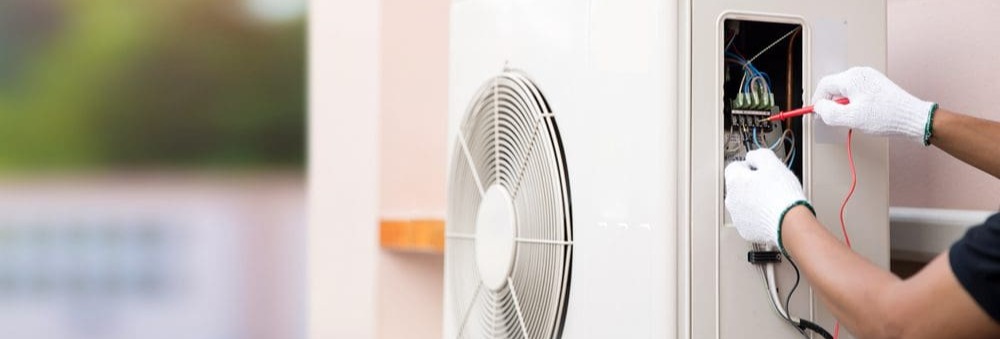A good Clean Heat Standard would apply to gas, oil, and propane. Not electricity.
In Massachusetts, both the legislative and executive branches are considering a Clean Heat Standard (CHS) to...
This year, Massachusetts government agencies are working on major aspects of building decarbonization in three different arenas: Mass Save, the “Future of Gas” proceeding, and the Clean Heat Standard. The Commonwealth must coordinate these efforts to find the optimum set of policy solutions. This blog outlines our view on how state agencies should be coordinating these processes.
As we often state, Massachusetts law requires that economy-wide greenhouse gas (GHG) emissions be reduced 50% below 1990 levels by 2030 and to net-zero emissions by 2050. For the building sector, the specific requirement is 49% reduction by 2030. Current policies on the books will not get us there. We need new and bigger interventions.
For a long time, the Commonwealth’s primary workhorse for building decarbonization has been the efficiency program known as Mass Save. It's required by law and overseen by the Massachusetts Department of Public Utilities (DPU). Investor-owned gas and electric utilities like National Grid and Eversource (and the Cape Light Compact) submit three-year plans for Mass Save to the Energy Efficiency Advisory Council (EEAC) before going to the DPU for final approval.
 Mass Save is a major program by any definition. It spends over a billion dollars per year of ratepayer money. Still, its benefits far outweigh its costs because efficiency costs less than buying supply and it reduces emissions that cause global warming and health care costs.
Mass Save is a major program by any definition. It spends over a billion dollars per year of ratepayer money. Still, its benefits far outweigh its costs because efficiency costs less than buying supply and it reduces emissions that cause global warming and health care costs.
Although Mass Save does contribute to GHG emission reductions, it doesn’t go far enough. In 2023, investor-owned gas utilities sold 2.6 billion therms of methane and claimed savings through efficiency of 23 million therms. At that rate, it would take over 100 years to reach net-zero emissions. We don’t have a century (and actually, it would take longer if gas utilities were allowed to increase gas sales through new customers or general economic growth). Methane consumption must be eliminated in 26 years to reach net-zero emissions by 2050. So, basically, Mass Save, using gas ratepayer money, has been reducing gas usage by just a fourth of what’s necessary.
Mass Save also uses electric ratepayer money to reduce oil and propane usage (through insulation and conversions to heat pumps). There are 729,000 oil and propane customers in the Commonwealth. Using electric ratepayer funds for this purpose is not sustainable. Electric rates charged by Eversource, National Grid, and Unitil are already too high, and those utilities are asking for rate increases related to grid modernization. If we want consumers to adopt heat pumps and electric vehicles, we must contain the cost of electricity. There’s also the issue of fairness. Gas ratepayers pay into Mass Save twice, once for gas and once for electricity. There is no efficiency charge on oil and propane.
According to the Commonwealth’s Clean Energy and Climate Plan, we need to ramp up to 100,000 heat pumps per year statewide as soon as possible. In 2023, there were a total of 28,000 heat pump installations (in oil, propane, gas, and electric resistance-heated homes). Most of those were the 22,000 oil and propane conversions funded by the surcharge on electricity bills.
On March 1, Rebecca Tepper, Secretary of Energy and Environment, reiterated the point that Mass Save program administrators should significantly increase the number of residential and commercial buildings retrofitted with heat pumps and weatherized each year, with a focus on buildings served by delivered fuels, to set the Commonwealth on a path to installing efficient electric space heating in 500,000 homes and 300-400 million square feet of commercial buildings this decade (emphasis added).

To hammer the point home ever harder, on December 6, 2023, the Mass. Department of Public Utilities issued an order, 20-80, announcing a new regulatory strategy for natural gas in the Commonwealth. This new strategy reflects DPU’s focus on helping the Commonwealth achieve its greenhouse gas (GHG) emissions reduction requirements through decarbonization, electrification, and the adoption of pilot programs for new technologies while minimizing additional investment and costs to protect ratepayers. In the words of DPU Chair James Van Nostrand, “As Massachusetts moves towards net zero emissions by 2050, the DPU must develop a regulatory structure for the gas sector befitting that requirement.”
Order 20-80 certainly indicates that the DPU is expecting gas utilities to reduce gas emissions through electrification and efficiency (not renewable natural gas and hydrogen, thankfully). However, a real question is whether the Mass Save program administrators, the Energy Efficiency Advisory Council, and the DPU are ready to quadruple Mass Save’s commitment to decarbonization this year. The program administrators will submit a draft plan to the EEAC in April and a final plan for EEAC approval in October, before going to the DPU for approval for the Three-Year Plan for 2025-2027.
While Mass Save and the DPU are doing their things, the Mass. Department of Environmental Protection is developing a regulation called the Clean Heat Standard (CHS) as another way to reduce emissions in the building sector. A CHS would require heating energy suppliers to replace fossil heating fuels with clean heat over time by implementing clean heat or purchasing credits. The main purpose of the CHS is to enable customers to electrify through weatherization, air-source heat pumps, ground-source heat pumps or networked geothermal). These same measures are what Mass Save does, but not at the scale we need.

Kudos to the Healey administration and the DEP for bringing this policy forward. A CHS can fill the gap between what Mass Save can do on its own and what the Commonwealth needs to meet its climate law requirements. DEP hopes to finalize the regulation by the end of 2024.
As a close observer of all three of the arenas mentioned above – Mass Save, DPU with Order 20-80, and DEP’s Clean Heat Standard – I would like to see better coordination among the three. Here are some suggestions for the powers that be:
Mass. DEP’s draft framework for the CHS has a requirement that 40% of clean heat credits benefit low- and moderate-income households. In terms of equity, this would be the most redistributive clean energy policy that Massachusetts has ever had, and it would be a big improvement over what Mass Save has been able to accomplish. It should be noted that Mass Save’s enabling statute focuses on cost-effectiveness, which limits how far it can go to ensure that benefits and costs are allocated fairly.
We’ve written this blogpost as an open letter to the state agencies working on these policies. But you can get involved too!
In Massachusetts, both the legislative and executive branches are considering a Clean Heat Standard (CHS) to...
In the last few weeks, there has been much written about rising natural gas rates in Massachusetts and some...
Comments